Gluten is a general name for the proteins found in wheat (wheatberries, durum, emmer, semolina, spelt, farina, farro, graham, KAMUT® khorasan wheat and einkorn), rye, barley and triticale – a cross between wheat and rye. Gluten helps foods maintain their shape, acting as a glue that holds food together. Gluten can be found in many types of foods, even ones that would not be expected.
The Big 3: Wheat, Barley, Rye
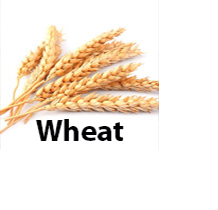 Wheat is commonly found in:
Wheat is commonly found in:
- breads
- baked goods
- soups
- pasta
- cereals
- sauces
- salad dressings
- roux
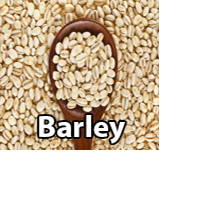 Barley is commonly found in:
Barley is commonly found in:
- malt (malted barley flour, malted milk and milkshakes, malt extract, malt syrup, malt flavoring, malt vinegar)
- food coloring
- soups
- beer
- Brewer’s Yeast
Rye is commonly found in: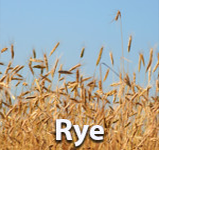
- rye bread, such as pumpernickel
- rye beer
- cereals
Other Grains
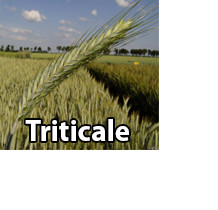 Triticale is a newer grain, specifically grown to have a similar quality as wheat, while being tolerant to a variety of growing conditions like rye. It can potentially be found in:
Triticale is a newer grain, specifically grown to have a similar quality as wheat, while being tolerant to a variety of growing conditions like rye. It can potentially be found in:
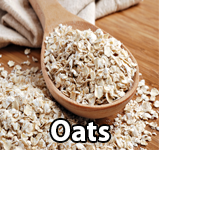 Oats can add diversity and offer many nutritional benefits to the gluten-free diet. CDF’s medical experts recommend only oats labeled gluten-free as cross-contact may occur when oats are grown side-by-side with wheat, barley or rye.
Oats can add diversity and offer many nutritional benefits to the gluten-free diet. CDF’s medical experts recommend only oats labeled gluten-free as cross-contact may occur when oats are grown side-by-side with wheat, barley or rye.
Patients eating oats from any source may complain of symptoms. This could be due to one or more of several factors, including intolerance to the increase in fiber, food intolerances, contamination with gluten, or, rarely, the development of an immune response to oat protein, similar to that occurring due to gluten.
What Else Contains Gluten?
There are many food items that may contain gluten, often in hidden or unexpected ways.
What Can I Eat?
Cutting out gluten from your diet may seem like a difficult and limiting task. Fortunately, there are many healthy and delicious foods that are naturally gluten-free!
Our 7-Day Gluten-Free Meal Plans can help you kick-start your gluten-free lifestyle. These nutritionally balanced Meal Plan provide three meals and snacks each day with easy to make recipes and “Quick Fixes” for those on-the-go.
The CDF Gluten-Free Allergy-Free Marketplace showcases products and services from companies that care about the gluten-free and allergy-free community. You can browse by dietary preferences, and view product pictures, ingredients, and nutrition facts to create your shopping list. You can also purchase specially designated products directly from Amazon.
What Can I Cook?
Find easy-to-fix recipes for every occasion at CDF’s Recipe Hub.
What Vitamins and Supplements Should I Take?
There are a variety of nutritional deficiencies associated with celiac disease, primarily caused by the inability of the damaged small intestine to properly absorb enough of the nutrients our bodies need. fter treatment with a strict gluten-free diet, most patients’ small intestines recover and are able to properly absorb nutrients again, and therefore do not require supplementation. For certain patients however, nutrient supplements may be beneficial.
What Medicines Can I Take?
The true chances of getting a medication that contains gluten is extremely small, but as a protector of your health, you should eliminate all risks by evaluating the ingredients in your medications.
Ask-Our-Dietitian
Janelle Smith, MS, RD,specializes in gastrointestinal symptom management through appropriate nutrition and food choices, helping you adapt to living on a gluten-free diet.
What is Gluten? What is Gluten?
What is Gluten? What is Gluten?

 Wheat is commonly found in:
Wheat is commonly found in: Barley is commonly found in:
Barley is commonly found in:
 Triticale is a newer grain, specifically grown to have a similar quality as wheat, while being tolerant to a variety of growing conditions like rye. It can potentially be found in:
Triticale is a newer grain, specifically grown to have a similar quality as wheat, while being tolerant to a variety of growing conditions like rye. It can potentially be found in: Oats can add diversity and offer many nutritional benefits to the gluten-free diet. CDF’s medical experts recommend only oats labeled gluten-free as cross-contact may occur when oats are grown side-by-side with wheat, barley or rye.
Oats can add diversity and offer many nutritional benefits to the gluten-free diet. CDF’s medical experts recommend only oats labeled gluten-free as cross-contact may occur when oats are grown side-by-side with wheat, barley or rye.